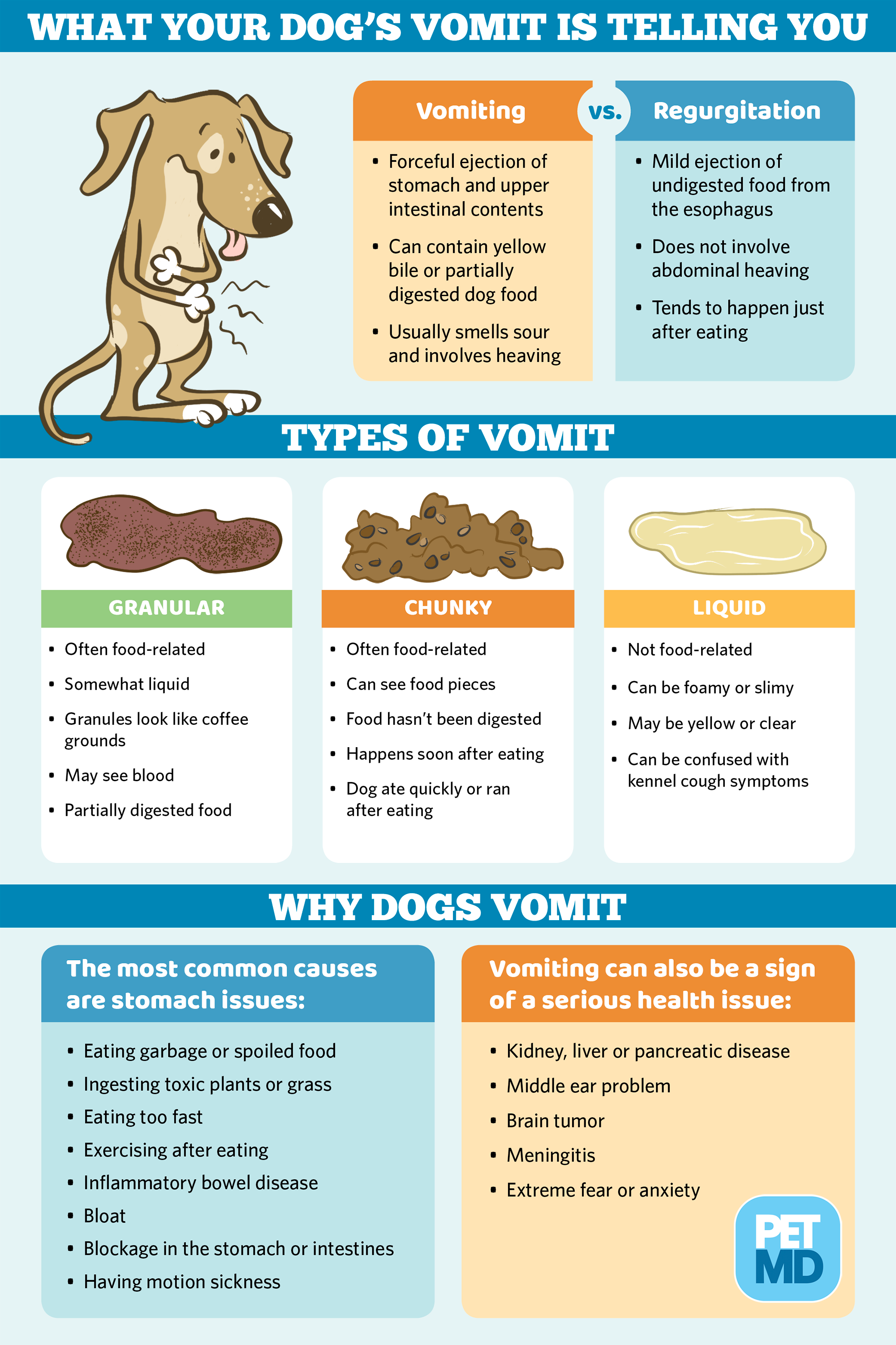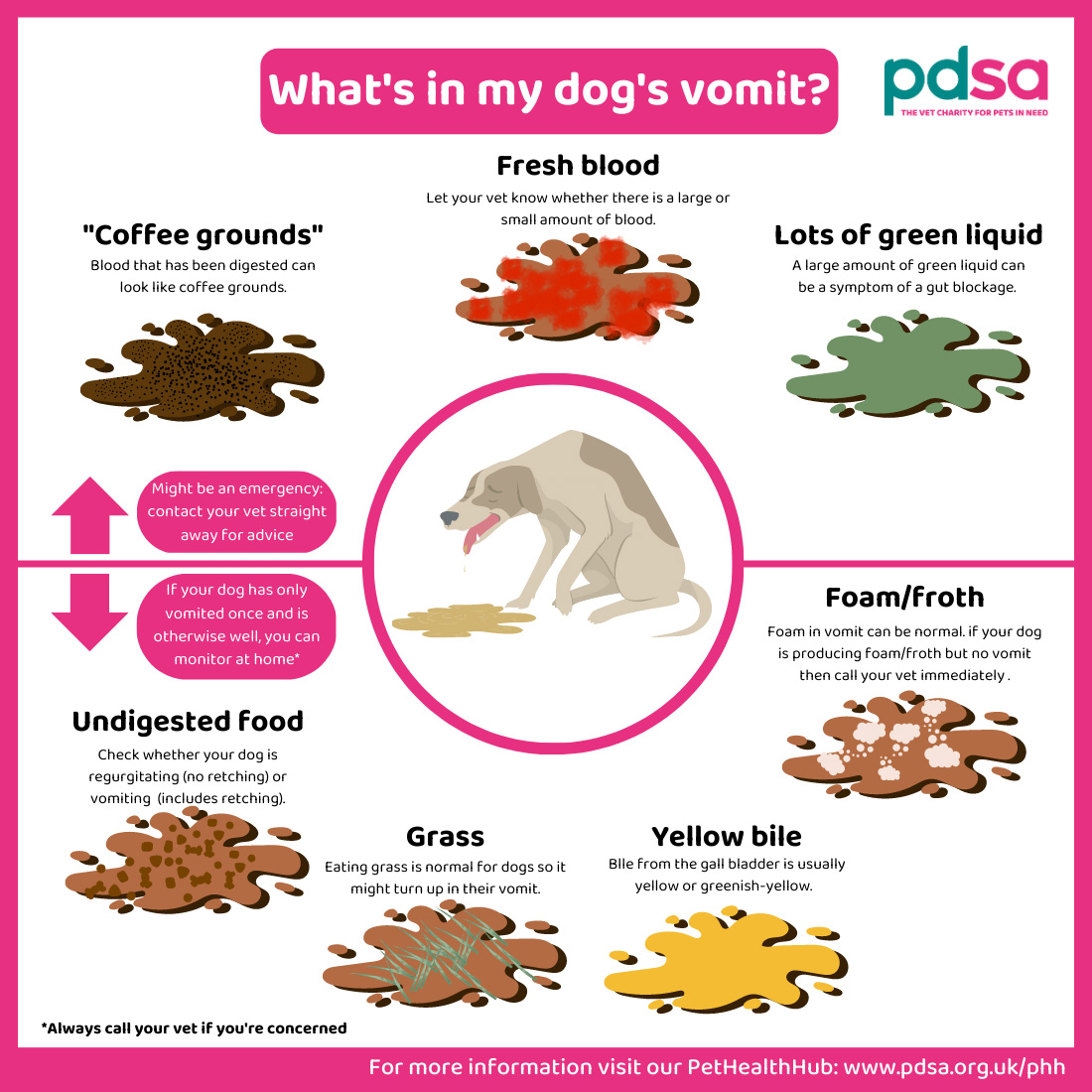Have you ever wondered why your chihuahua is throwing up? It might surprise you to know that chihuahuas are more prone to gastrointestinal issues compared to other dog breeds. This could be due to their small size and sensitive digestive systems. So, if you find your chihuahua vomiting frequently, it’s essential to understand the underlying causes and seek appropriate care.
Chihuahuas throwing up can be attributed to various factors such as dietary indiscretion, food allergies, infections, or underlying medical conditions. Additionally, the breed’s small stature can make them prone to eating objects they shouldn’t, leading to obstructions in their digestive tract. If your chihuahua is experiencing recurrent vomiting, it’s crucial to consult a veterinarian who can conduct a thorough examination and provide the necessary treatment. Remember, early intervention and proper care can ensure your chihuahua’s health and well-being.

Why Is My Chihuahua Throwing Up?
Introduction:
If you are a chihuahua owner, you may have experienced the concerning situation of your furry friend throwing up. While occasional episodes of vomiting may not be unusual for dogs, frequent or persistent vomiting should not be ignored. In this article, we will explore the various reasons why your chihuahua may be throwing up and provide valuable insights into how to address this issue. Remember, it is always essential to consult with your veterinarian for a proper diagnosis and treatment plan.
1. Dietary Issues and Food Allergies
Chihuahuas, like all dogs, can be sensitive to certain foods or have food allergies. If your chihuahua consistently vomits after eating, it could be due to an adverse reaction to their food. Common culprits include ingredients such as wheat, dairy, or artificial additives. Also, chihuahuas have small stomachs, so overeating or eating too quickly can provoke vomiting. Make sure to feed your chihuahua a high-quality, easily digestible diet and consider consulting with your vet to determine if a change in food is necessary.
2. Gastrointestinal Infections
Gastrointestinal infections, such as gastroenteritis, can lead to vomiting in chihuahuas. These infections can be caused by viruses, bacteria, parasites, or even ingesting contaminated food or water. Symptoms may include vomiting, diarrhea, loss of appetite, and lethargy. If you suspect your chihuahua has a gastrointestinal infection, it is crucial to seek veterinary care. Your vet may prescribe medications to alleviate symptoms and recommend a bland diet until your chihuahua recovers.
2.1 Parasites
Internal parasites, such as roundworms, hookworms, or giardia, can also cause vomiting in chihuahuas. These parasites can be acquired through contact with contaminated soil, infected fleas, or ingesting infected food or water. Regular deworming and preventative measures, such as flea control, can help protect your chihuahua from parasitic infections and reduce the risk of vomiting.
3. Foreign Objects and Intestinal Blockages
Chihuahuas, known for their curious nature, may accidentally ingest small objects that can cause gastrointestinal distress. If your chihuahua has swallowed a foreign object, it can become lodged in the intestines, leading to vomiting. Common items include toys, bones, or even household items. It is crucial to monitor your chihuahua’s behavior and keep small objects out of their reach. If you suspect a foreign object ingestion, seek immediate veterinary attention as surgical intervention may be necessary to remove the obstruction.
4. Pancreatitis
Pancreatitis is a condition characterized by inflammation of the pancreas. Chihuahuas are prone to pancreatitis, which can be triggered by consuming high-fat foods, such as bacon or fatty cuts of meat. Symptoms may include vomiting, abdominal pain, loss of appetite, and lethargy. If you suspect your chihuahua has pancreatitis, it is essential to consult with your veterinarian for a proper diagnosis and treatment plan. Treatment often involves a low-fat diet, medication, and supportive care.
5. Heatstroke
Chihuahuas are more susceptible to heatstroke due to their small size and delicate respiratory systems. When exposed to high temperatures for extended periods, they can experience heatstroke, resulting in vomiting, excessive panting, weakness, and even seizures. If you suspect your chihuahua is suffering from heatstroke, it is crucial to cool them down gradually in a shaded area, offer water, and seek emergency veterinary care.
6. Stress and Anxiety
Chihuahuas are known for their sensitive nature and can become anxious or stressed, leading to episodes of vomiting. Situations such as changes in routine, loud noises, or unfamiliar environments can trigger stress in your chihuahua. It is essential to create a calm and secure environment for them, provide plenty of mental and physical stimulation, and consider consulting with a professional trainer or behaviorist for assistance.
7. Other Medical Conditions
In some cases, vomiting in chihuahuas can be a symptom of underlying medical conditions such as kidney disease, liver disease, gastrointestinal tumors, or hormonal imbalances. These conditions require a thorough veterinary examination, including blood tests and imaging, to determine the underlying cause. Early detection and treatment are crucial for these conditions, so it is essential to closely monitor your chihuahua’s health and seek veterinary care if vomiting persists.
Wrap-Up:
It is important to remember that vomiting in chihuahuas can be caused by various factors, ranging from minor issues to more severe medical conditions. If your chihuahua is throwing up, it is always best to consult with your veterinarian for a proper diagnosis and treatment plan. By addressing the underlying cause and providing appropriate care, you can help your chihuahua feel better and ensure their overall well-being.
Key Takeaways: Why is my Chihuahua throwing up?
- Chihuahuas may throw up due to various reasons such as eating too quickly or having a sensitive stomach
- Food poisoning or ingestion of toxic substances can also cause vomiting in Chihuahuas
- Anxiety, stress, or excitement can trigger vomiting in these small dogs
- Gastrointestinal issues like gastritis or pancreatitis may be the underlying cause
- If your Chihuahua vomits frequently or shows other concerning symptoms, consult a veterinarian for proper diagnosis and treatment
Frequently Asked Questions
Is your chihuahua throwing up? Find the answers to some common questions related to this issue.
1. What are the common reasons why my chihuahua is throwing up?
There can be various reasons why your chihuahua is throwing up. One common cause is dietary indiscretion, such as eating spoiled food, garbage, or foreign objects. Another reason could be an abrupt change in their diet. Chihuahuas are also prone to food allergies, so it’s possible that their vomiting is a result of a reaction to something they’ve eaten. Additionally, chihuahuas can suffer from gastrointestinal issues like gastritis or pancreatitis.
If your chihuahua is repeatedly throwing up without any obvious cause, it’s important to consult a veterinarian to rule out any underlying health issues. They will be able to provide a proper diagnosis and recommend the necessary treatment.
2. How can I prevent my chihuahua from throwing up?
To prevent your chihuahua from throwing up, there are a few steps you can take. First, ensure that you are feeding them a balanced and appropriate diet for their size, age, and specific needs. Avoid sudden changes in their diet, as this can cause digestive upset. It’s also important to keep them away from any potential hazards like toxic plants, chemicals, or objects they may swallow.
Stress can also contribute to vomiting in chihuahuas, so try to create a calm and secure environment for them. Regular exercise and mental stimulation can help reduce stress levels. Lastly, always provide access to fresh water and monitor their eating habits. If you notice any changes or concerns, consult a veterinarian for guidance.
3. Should I be worried if my chihuahua throws up once?
Occasional vomiting may not be a cause for immediate concern, especially if your chihuahua appears otherwise healthy. It could simply be a result of eating something disagreeable or having an upset stomach. However, if your chihuahua is vomiting continuously or frequently, exhibits other symptoms like diarrhea, lethargy, or loss of appetite, it’s important to seek veterinary attention. Persistent vomiting can lead to dehydration and other complications, so it’s best to have them checked by a professional.
Your veterinarian will be able to perform a thorough examination and recommend appropriate tests or treatments. It’s always better to err on the side of caution and have your chihuahua evaluated by a professional to ensure their well-being.
4. Can I give my chihuahua any home remedies for vomiting?
While there are some home remedies that may help alleviate mild cases of vomiting, it’s crucial to consult with a veterinarian before trying anything. They will be able to assess your chihuahua’s specific condition and provide appropriate guidance. In some cases, certain home remedies can do more harm than good.
One thing you can do is temporarily withhold food for 12 to 24 hours, allowing their stomach to settle. However, it’s important to provide access to fresh water to prevent dehydration. Once the vomiting has subsided, you can gradually introduce small, bland meals like boiled chicken and rice. Probiotics or digestive enzymes may also be recommended by your veterinarian to aid in digestion and restore the gut’s balance.
5. When should I take my chihuahua to the vet for vomiting?
If your chihuahua is experiencing any of the following, it’s advisable to seek veterinary care for their vomiting:
– Persistent or frequent vomiting
– Vomiting accompanied by other concerning symptoms like diarrhea, lethargy, or loss of appetite
– Vomiting blood or a substance that resembles coffee grounds
– Inability to keep any food or water down
Your veterinarian will be able to assess your chihuahua’s condition, provide a proper diagnosis, and recommend the necessary treatment. They may also run diagnostic tests to rule out any underlying medical issues. Early intervention can help prevent further complications and ensure your chihuahua’s health and well-being.

